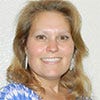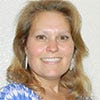Auditing a Contract Laboratory
Auditing helps properly evaluate scientific expertise in contract labs to ensure a laboratory is in compliance with regulations or statutory requirements.
September 20, 2017

Contract laboratories provide an extremely valuable and necessary service to the dietary supplement industry. Seldom is it the case an own-label distributor (OLD) or manufacturer has an in-house laboratory equipped with the appropriate scientific expertise to conduct all the testing required in 21 CFR 111 (current good manufacturing practices (cGMP)) in manufacturing, packaging, labeling or holding operations for dietary supplements. However, a contract laboratory must be highly scrutinized by either the OLD or manufacturer to ensure the laboratory complies with the applicable subparts of 21 CFR 111 as well as other regulations or statutory requirements. FDA has made this abundantly clear in numerous warning letters issued to the industry. Auditing a contract laboratory is the best way to evaluate and document that the laboratory has the scientific expertise in terms of personnel, facility, instrumentation and equipment, and testing methodologies needed. An audit also is useful to confirm a contract laboratory’s compliance with FDA regulations.
A variety of scientific expertise among the laboratory personnel is available at a contract laboratory. All personnel must possess the education, training or experience needed to perform their job function in accordance with 21 CFR 111.12(c). The same is true for assigned supervisors per 21 CFR 111.13(b). Responsibilities and activities for each job function or position should be described in a formal job description document, which should also indicate the required education, training and experience for the position. On the job training—such as standard operating procedure (SOP)—classwork training and proficiency training for the performance of test methods should be documented and provided in a personnel training record. These, as well as a resume or biography of several selected individuals of varying positions, should be examined during the audit. This will verify compliance with the regulatory requirements and ensure the laboratory has the personnel scientific expertise to competently perform the desired tests.
The laboratory facility used to perform testing must be adequate per 21 CFR 111.310. This is stated in more detail in 21 CFR 111.20 where the regulation dictates the facility must be suitable in size, construction and design to facilitate maintenance, cleaning and sanitizing operations; there must be adequate space to prevent contamination and mix-ups. Although the latter refers to dietary supplement materials and products, it is also certainly applicable to the storage and testing of samples in the laboratory as well.
Another important type of scientific expertise in the laboratory is the instrumentation and equipment that the laboratory has available for testing. Various instrumentation, particularly detection systems, can significantly change the capability of the method of analysis, and the type used must be defined and appropriate for the sample. According to 21 CFR 111.27, all equipment must be of appropriate design, construction and workmanship to enable them to be suitable for their intended use. This is generally accomplished using an equipment qualification program. Documentation supporting the qualification of several different types of equipment should be reviewed during the audit. Part of the review must include an assessment of any software or electronic operations being performed by the instrumentation. All electronic equipment and records must comply with the requirements dictated in 21 CFR 11, (electronic records, electronic signatures). Equipment must then be calibrated and maintained at a frequency dictated by the manufacturer to maintain accuracy and precision per 21 CFR 111.27(b), and these activities must be documented in equipment logbooks as governed in 21 CFR 111.35(b)(3).
There are often multiple types of analysis techniques that can be applied to perform a test, and many laboratories specialize in a certain type of technique. The test method selected must be appropriate for the sample and associated material or product specification. Identification tests can be qualitative, but only quantitative methods can be employed for strength (assay) testing. Contaminant testing must also be quantitative, and it is critical that these methods have the necessary detection and quantitation limits to achieve the material or product specification limits. All laboratory controlled processes, including written procedures for the test method employed, must be developed and implemented in the laboratory as required in 21 CFR 111.325. There must be evidence these test methods are being conducted, as written, by laboratory personnel and that this is documented at the time of performance by the analyst or microbiologist. This documentation must be thorough and detailed, and include the performance of each point, step and stage of the method.
Test methods used for the determination of whether a dietary supplement material or product has been met must be scientifically valid as required in 21 CFR 111.75(h)(1) and 111.320(b). FDA described a scientifically valid test method in the preamble to 21 CFR 111 as one that is accurate, precise and specific for its intended purpose, and consistently does what it is intended to do (rugged). Documentation that a method meets these criteria is accomplished from method validation studies for the particular sample matrix via experimentation, peer-reviewed literature, or compendial sources. Several examples of such documentation should be reviewed by the auditor.
Other critical laboratory-controlled processes to examine during a contract laboratory audit include those for out-of-specification (OOS) investigations, deviations, and corrective and preventative actions. These situations are inevitable, and a strong quality system must be in place for handling them.
Learn more about auditing contract labs from Tara Couch during the Selecting and Testing Your Contract Laboratory workshop on Tuesday, Sept. 26 at 9 a.m. at SupplySide West in Las Vegas. The Workshop is underwritten by Alcami, ARL, Eurofins, Micro Quality Labs and Midi Labs.
Tara Lin Couch is a Ph.D. analytical/organic chemist with exceptional analytical abilities and more than 25 years of diverse laboratory and regulatory experience in academic, field, contract and manufacturing environments. She is a sought-after expert on issues pertaining to quality control (QC) in both pharmaceutical and dietary supplement manufacturing. As a consultant, Dr. Couch assists with the development, improvement and implementation of quality systems that are scientifically sound, efficient, practical and compliant with FDA regulations. She also performs mock FDA inspections, gap-analyses and contractor and laboratory audits. Dr. Couch provides GMP and laboratory trainings via seminar, webinar and on-site presentations.
About the Author
You May Also Like

